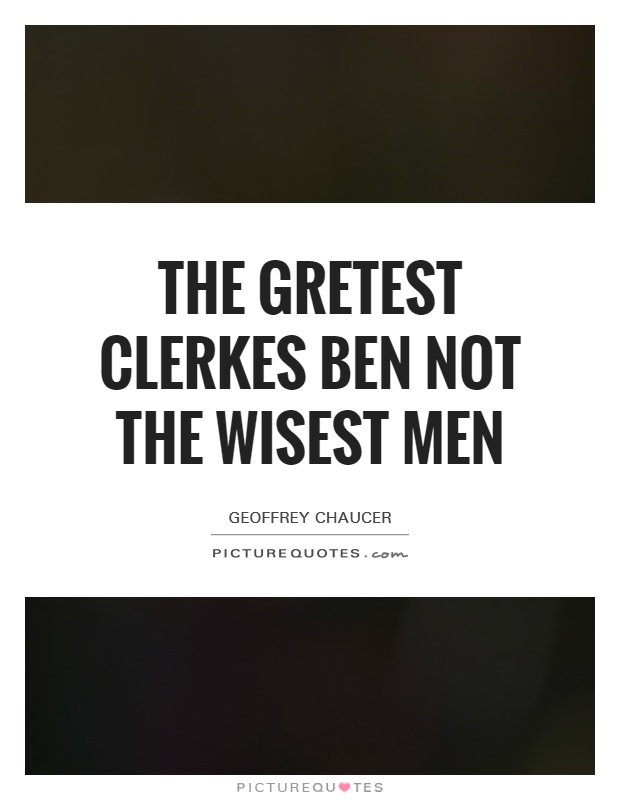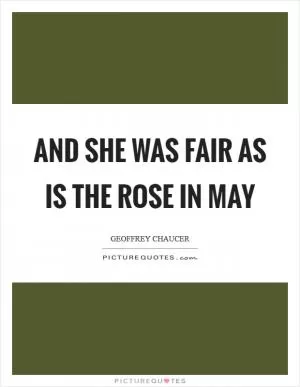The gretest clerkes ben not the wisest men

The gretest clerkes ben not the wisest men
Geoffrey Chaucer, often referred to as the father of English literature, was a poet, philosopher, and diplomat in the 14th century. His works, particularly "The Canterbury Tales," are considered some of the greatest pieces of literature in the English language. Chaucer was known for his keen observations of human nature, his wit, and his ability to capture the complexities of society in his writing.One of the recurring themes in Chaucer's work is the idea that intelligence and wisdom are not always synonymous. In "The Canterbury Tales," Chaucer presents a diverse group of characters, each with their own strengths and weaknesses. While some of the characters may be highly educated or skilled in a particular field, they are not necessarily the wisest or most virtuous individuals.
One of the most famous lines from "The Canterbury Tales" is "The gretest clerkes ben not the wisest men." This line is spoken by the character of the Wife of Bath, a woman who has been married five times and is known for her sharp wit and strong opinions. The Wife of Bath challenges the traditional idea that knowledge and wisdom are one and the same, suggesting that true wisdom comes from lived experience and an understanding of human nature.
Chaucer himself was a highly educated man, having served as a diplomat and held various positions in the royal court. However, he was also a keen observer of human behavior and was able to capture the complexities of society in his writing. Chaucer understood that intelligence and education were important, but they were not the only factors that contributed to wisdom.












 Friendship Quotes
Friendship Quotes Love Quotes
Love Quotes Life Quotes
Life Quotes Funny Quotes
Funny Quotes Motivational Quotes
Motivational Quotes Inspirational Quotes
Inspirational Quotes